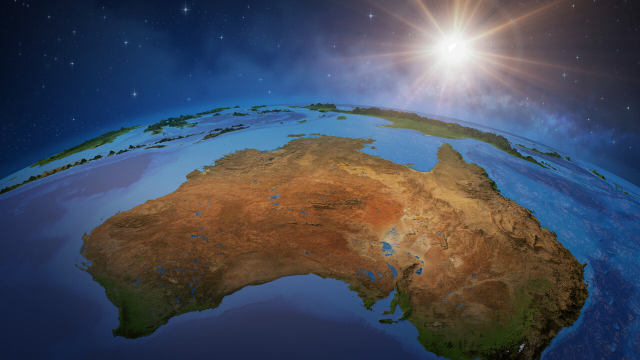On Thursday it was NBN Co’s turn to face questioning from senators as part of Senate Estimates. The first question it was asked was about Elon Musk. Well, his Starlink service, but Mr Twitter himself got a mention a handful of times, nonetheless.
In fact, it was the majority of questions the company rolling out the National Broadband Network was asked about during its hour of questioning before senators. An hour is a hell of a lot less than previous Senate Estimates where the company was facing questioning for many hours into the night, by the way, and it was a bizarre feeling when they were dismissed so soon.
But alas, we got to hear about Sky Muster and just how unfazed NBN Co is about Starlink. Starlink said earlier this month it has signed some-120,000 Aussie customers, 20,000 more than in February. NBN Co’s satellite business peaked at around 112,000, and that was at the tail end of COVID. Currently, it has around 95,000.

If you ask Shadow Communications Minister David Coleman, “The NBN is getting absolutely smashed by Elon Musk”. If you ask NBN Co CEO Stephen Rue and NBN Co’s ‘regional and remote’ chief development officer Gavin Williams, it’s not that bad.
Agreeing with her minister, senator Sarah Henderson kicked off questioning with: “It’s clear Elon Musk’s Starlink is providing a superior service both in terms of technology and also cost,” taking another stab by saying Starlink is a superior option when compared to the “outdated technology that you provide in your satellite service”. She later referred to it as “chalk and cheese” and that it’s making the NBN satellite service completely irrelevant.
Williams reckons the drop in customers was BAU, that normal post-COVID drop offs happened, and customers instead opted to use their mobile data (limited of course to areas where telcos had fixed blackspots) as well as just simply “other technologies”.
Williams explained that Sky Muster is going through “significant upgrades”. In fact, the former government allocated $480 million to the cause back in July 2022. Williams said the cash is enabling the company to “lift the speed capability on average” and it’s also allowed it to expand the footprint of what would be satellite coverage into fixed wireless coverage, to the tune of about 120,000 homes.
“All of these things mean that we have the opportunity to elevate customer experience for our satellite customers,” he said.
But to the actual question of ‘What is NBN doing about Starlink’s growth?’, Williams said NBN Co is working on giving more customers uncapped data (there’s a trial on right now, actually, but sir it may be too little too late).
“A lot of our fibre-to-the-premise upgrade is in regional Australia,” Rue jumped in to remind senators. “Plus, the fixed wireless program, plus the [satellite] enhancements, and the opportunity to move 120,000 base off satellite onto our fixed wireless network. All of that is a significant investment in regional Australia.
“I can assure you, it’s top of our mind.”
Also worth noting, Williams said, is that Starlink prices are significantly lower than “some of the alternatives”. The lowest price NBN Co offers is $35 a month.
Henderson, clearly having never met anyone outside of her age bracket and living week to week on minimum wage, said price is not a driver of business.
“When the satellite launched, it was leading edge,” Rue said. “There’s no doubt the technology has moved on over time, in fact that’s why we continue to invest.”
But he did return the conversation back to the part where NBN Co is focusing on its fixed wireless network and where the company can actually help regional customers. He briefly let slip the words ‘Low Earth Orbit satellite’ and Henderson latched onto that, asking if NBN Co was going to launch its own LEO service. Rue said: “There’s many options that we’re working through at this stage, I’ve no plans at this stage – I don’t have a plan I can tell you exactly at this stage – but we’re looking at all options on the table.”
“The world is changing before our eyes and the use of technology is increasing exponentially, and that’s why our upgrade program is so important,” he added.
Asked if Sky Muster customers will grow, Rue had one final thing to say.
“We’re no doubt in a competitive environment … is our product competitive? Absolutely. Do we need to compete on a day-to-day basis? Absolutely. The fibre upgrade program clearly is an opportunity for customers to receive higher speeds … [we have to] market ourselves, demonstrate ourselves, and continue to invest in our network is critical,” he said. “We will grow.
“As data grows, there is no better service than a fixed line service because it provides the capacity that’s needed.”
